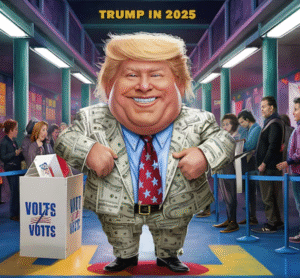#HarrisCampaign #Election2024 #USPolitics #Inflation #JobMarket #EconomicPolicy #ElectionReady #CampaignStrategy
In a recent statement from the Harris campaign, it was made clear that with just 60 days left until the election, there’s simply no time to dwell on the economic hardships or the reasons behind them that have marked the past four years. As reported by Steve Watsom for Modernity.news, the campaign’s focus is firmly on the upcoming election, with little attention being paid to dissecting the causes of current issues such as high inflation and unsatisfactory job numbers. Ian Sams, a spokesman for Harris-Walz, emphasized the campaign’s urgency and focus on the future, rather than engaging in reflections on past actions or policy outcomes.
This stance has sparked a wide array of reactions across social media platforms and beyond, pointing out the refusal to engage with substantive policy discussion or acknowledgment of past performance issues. Critics argue that this approach neglects the need for accountability and a clear presentation of future plans to address ongoing economic concerns. Notably, the discourse has highlighted a perceived avoidance of detailed policy dialogues, suggesting a strategy that prioritizes electoral success over public scrutiny of past and proposed governance.
The concern over the economic direction of the past four years under Harris’s watch is at the forefront of public discourse, accentuating the challenges faced by the administration in areas like inflation control and job creation. The campaign’s reluctance to delve into these matters, as pointed out in the dialogue and imagery shared online, underlines a broader issue of political accountability and the necessity for candidates to articulate clear policy visions. The backlash, encapsulated in humor and criticism online, reflects a growing demand for political leaders to offer solutions rather than bypassing critical analysis of their record.
In light of these developments, the final push towards the election is characterized by a complex landscape where public sentiment and political strategy intersect. As the Harris campaign propels forward without stopping to “think about why certain things have happened” in the past four years, it raises questions about the future direction and priorities. The emphasis on moving forward without reflection may resonate with some voters eager for change, but it also poses a challenge in building trust among those seeking reassurance that past mistakes won’t be repeated. The culmination of these dynamics points to an election cycle intensely focused on forward momentum, yet shadowed by unresolved issues that loom large in the collective memory of the electorate.







Comments are closed.